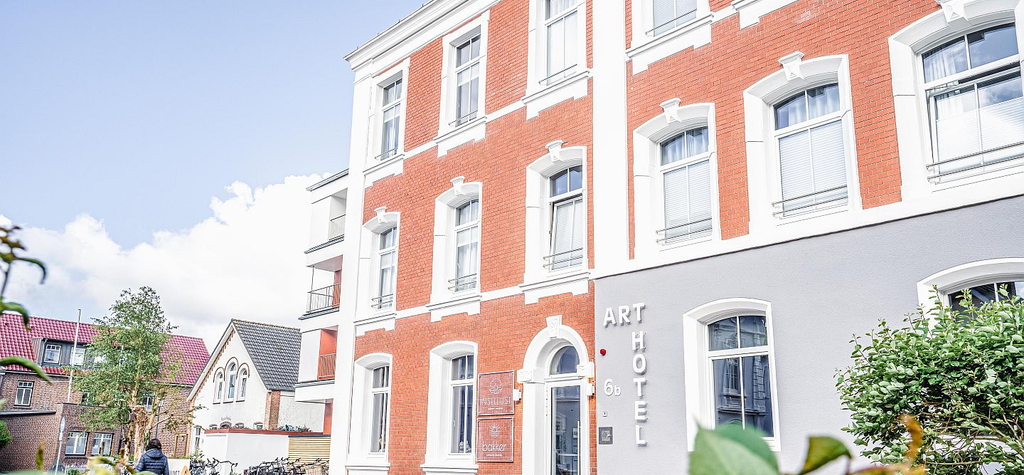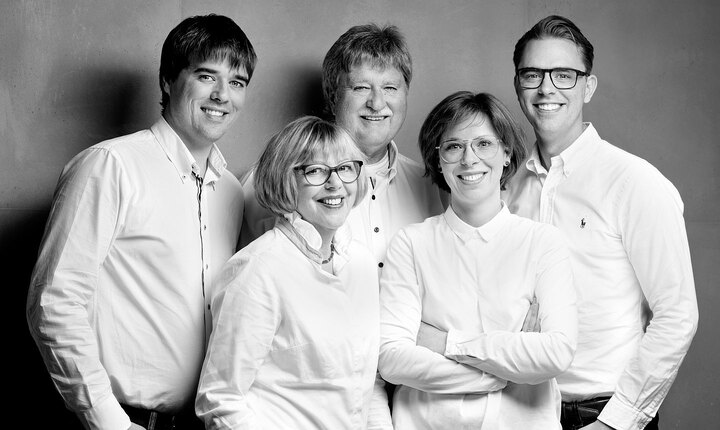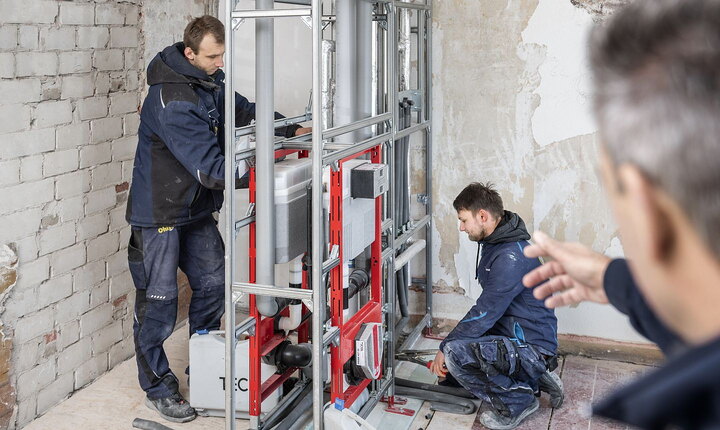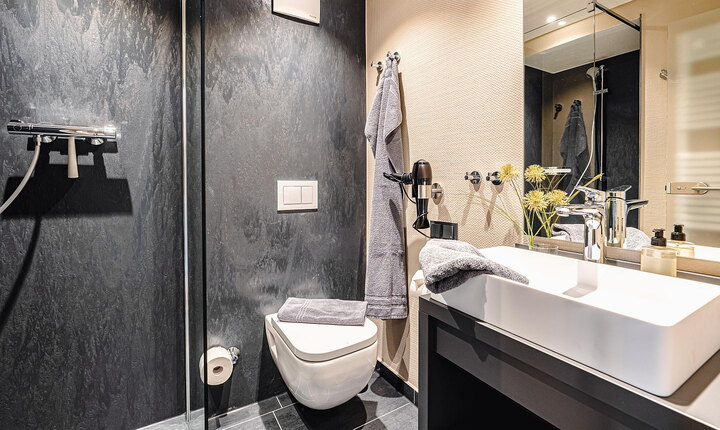
The arthotel bakker
New face for traditional ensemble on the North Sea island of Borkum
Not only architecturally is it a little pearl. The core-renovated arthotel bakker on the North Sea island of Borkum is also impressive in other respects. The modernisation of the ensemble of old and new buildings with 45 rooms was completed in record time thanks to the use of industrially prefabricated sanitary walls. On Borkum, renovation and refurbishment is only allowed between 1 November and 31 May. During the other months, tourists must not be disturbed by construction site noise.
Hotel renovation as a family project
"It's almost a miracle that we actually made it in just under seven months."

Foto: HOCHDREI
This is how Neele Benken sums up the renovation in record time, behind which the managing director of the planning and architectural office HOCHDREI GmbH and HÜPPE + PARTNER stands with her brother Sören Hüppe. The two are running the hotel together, having acquired it in November 2021 after a ten-year lease. Their father Dipl.-Ing. Michael Hüppe planned and supervised the refurbishment as architect. The siblings also received support from their mother Gesche Hüppe (interior design) and brother Jan-Henrik Hüppe (construction management).
Energy self-sufficiency of up to 70 percent
The three-storey old building was completely renovated, as was the four-storey concrete building. The latter also received an optimised façade. In the process, typical problem areas were solved: "On the one hand, the sound insulation complex," reports Michael Hüppe. "In addition, we put a lot of effort into screed, underfloor heating, heat and wall construction, and insulated the entire building in such a way that we are in a completely different class in terms of energy."
In this way, KfW funding programmes for energy efficiency and renewable energies could be used. The required leap above the 50 percent mark for renewable energies was achieved thanks to photovoltaics on the roof and air-heat pumps in the basement as well as the corresponding insulation and smart building technology. "Calculated over the year, we can achieve energy self-sufficiency of between 60 and 70 per cent," says Sören Hüppe.
Recommendation from TECEsystem
On the recommendation of the local specialist trade company Ohlsen, the choice for the new sanitary technology fell on the industrially prefabricated sanitary walls from TECEsystem. Two aspects tipped the scales: the time saved during assembly and the construction site logistics. "If I build everything myself on site, I need a different storage capability," specifies Sören Hüppe. The local possibilities would not have allowed for this. This also applies to the use of skilled workers, whose shortage has been a long-standing problem, not only on Borkum. In conventional construction, "three times the number of employees would have been necessary", Hüppe explains.

Photo: Bettina Meckel-Wolf

Photo: heyFreedom
Modular construction without alternative
Daniel Ohlsen, engineer and master plumber, implemented the renovation with his company: "On the mainland, you get experts for individual work steps, on Borkum that's unaffordable". On the island, the costs of the ferry and overnight accommodation are added to the dependence on the tides. So only industrial prefabrication in modular construction was an option, so that the sanitary installation could be completed in just six months. "TECE took a lot of the planning work off my hands that I normally do myself," says Ohlsen. Among other things, he sees the uncomplicated integration of hygienic flushing stations for cold and hot water on the upper floors and the odour extraction system at the toilet as an advantage of the modular construction. Both would have meant considerable additional installation work in conventional construction.
High-quality sanitary technology down to the smallest detail
In detail, TECEsystem was used 14 times as room dividers in the renovation of 45 bathrooms, in concrete construction as walls between two bathrooms and in old buildings also within a bathroom as a separation between the shower and the rest of the room. Prefabricated registers were installed in shafts 31 times, and blow-in insulation was used for fire protection in all 45 walls with integrated hygiene cisterns. The TECEnow flush plates in glossy white round off the high-quality bathroom fittings.
